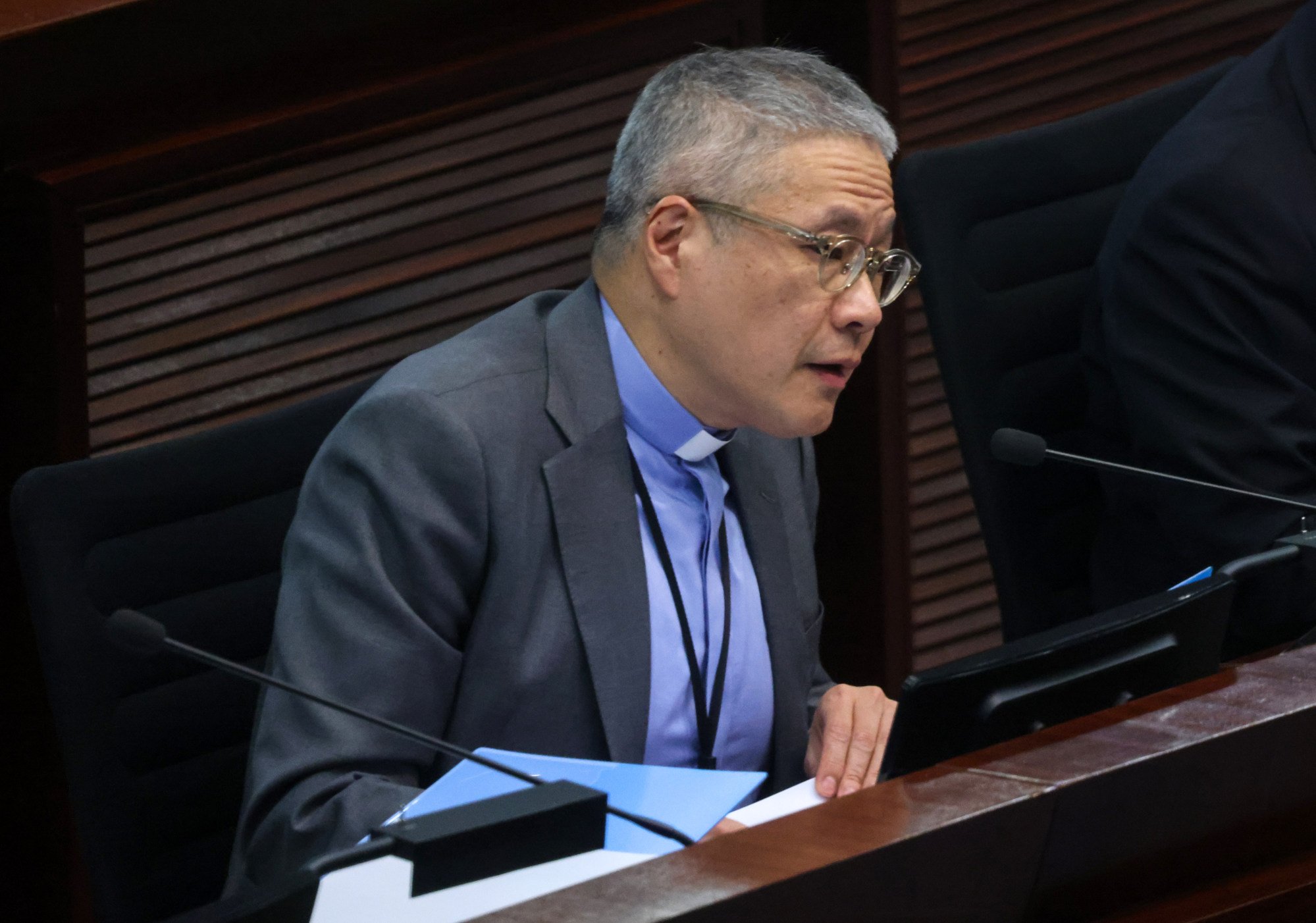Hong Kong domestic security legislation: ‘reasonable excuse’ may be needed for possessing publications later deemed seditious
Residents may need to have a “reasonable excuse” if they have saved old publications later deemed seditious, Hong Kong’s security chief has told lawmakers scrutinising the city’s domestic security bill after being asked if it will be a criminal offence to keep copies of the now defunct Apple Daily tabloid.
Possessing seditious publications, an offence inherited from a colonial-era law, will be incorporated into a new Safeguarding National Security Ordinance under proposed legislation that a Legislative Council bills committee sped up examining on Saturday.
The 212-page bill, mandated under Article 23 of the city’s mini-constitution, the Basic Law, was submitted to Legco on Friday and the committee cleared about a sixth of all clauses after 12 hours of marathon meetings across two days.
While the possession offence’s wording will remain largely unchanged, the maximum sentence will be increased from one year’s imprisonment to three years.
One legal scholar said it was also “troubling” that suspended jail sentences would be removed for sedition offences.
Lawmaker Peter Koon Ho-ming said residents saving old copies of Apple Daily were worried and wondered if they had to dispose of them.
Hong Kong Article 23 penalties similar to those in other common law jurisdictions
Hong Kong Article 23 penalties similar to those in other common law jurisdictions
Apple Daily founder Jimmy Lai Chee-ying is currently on trial charged with conspiracy to print and distribute seditious publications as well collusion with foreign forces.
“Apple Daily is absolutely seditious and some people feel like saving a copy or two at home to keep a record of such a lousy newspaper,” Koon told the Legco meeting.
“Does that make it possession of a seditious publication?”

While officials avoided naming the newspaper given the ongoing trial, acting principal government counsel Ivan Leung said an old publication might still be ruled seditious in future trials regardless of when it was published.
Secretary for Security Chris Tang Ping-keung said a collector of old Apple Daily copies might need to invoke the reasonable excuse clause in the law as a defence.
“[If] one has kept that publication for a long time without knowing it is still there, and there is no purpose of using it for incitement, I believe this can be a reasonable excuse,” he said.
Sedition offences have frequently been cited in police arrests after the Beijing-decreed national security law came into force in June 2020.
Hong Kong authorities urged to do more to explain proposed domestic security law
Hong Kong authorities urged to do more to explain proposed domestic security law
The Bar Association previously advised authorities to narrow the scope of the offences in the new law to stay in line with the trend observed in other jurisdictions, such as making incitement of violence an essential element in establishing seditious intentions.
The bill instead added a clause to specify that “proof of intention to incite public disorder or to incite violence is not necessary”.
Secretary for Justice Paul Lam Ting-kwok said authorities were confident that the approach was “absolutely in line with international human rights standards”.
The bill also includes a proposed amendment to the Criminal Procedure Ordinance that will place “an offence endangering national security” alongside manslaughter and rape under a list of crimes where suspended sentences will not be available to those convicted.
What is being discussed in marathon meetings on Hong Kong’s domestic security bill?
What is being discussed in marathon meetings on Hong Kong’s domestic security bill?
Professor Simon Young Ngai-man, a legal expert at the University of Hong Kong, said it was troubling that those convicted of sedition, such as for possessing seditious publication, would be deprived of suspended sentences.
“One can imagine some very trivial cases that could warrant a suspended sentence. The options now will be probation or community service order at one extreme and jail at the other,” Young said.
“I hope legislators will consider reserving the ‘excepted offence’ rule to apply only to those national security offences punishable by life or 14 years’ imprisonment.”
The committee’s scrutiny of each of the bill’s 181 clauses gathered pace on Saturday.
After a relatively intense discussion that focused largely on the definition of “external forces” the previous day, with the committee clearing six clauses in four hours, it deliberated on 27 clauses in eight hours on Saturday.
Some legislators were concerned that people could be caught “inciting disaffection of public officers” by advising civil servants to quit their jobs to emigrate or have a child.
Lam said the incitement offence targeted the abandoning of allegiance to the constitutional order, not just giving up employment.
“For example, supporting Hong Kong independence or the secession of the city from the country and not supporting the city as a special administrative region of the country will be considered as abandoning upholding the Basic Law and abandoning allegiance to [the government],” he said.
The committee will spend another eight hours going through the bill on Sunday. It remained unclear whether more sessions could be held in the next two days when five other panel or committee meetings had already been scheduled.
The Post has learned that lawmakers who are members of these panels have told their chairs they will prioritise their duties in the bills committee.
Additional reporting by Oscar Liu


